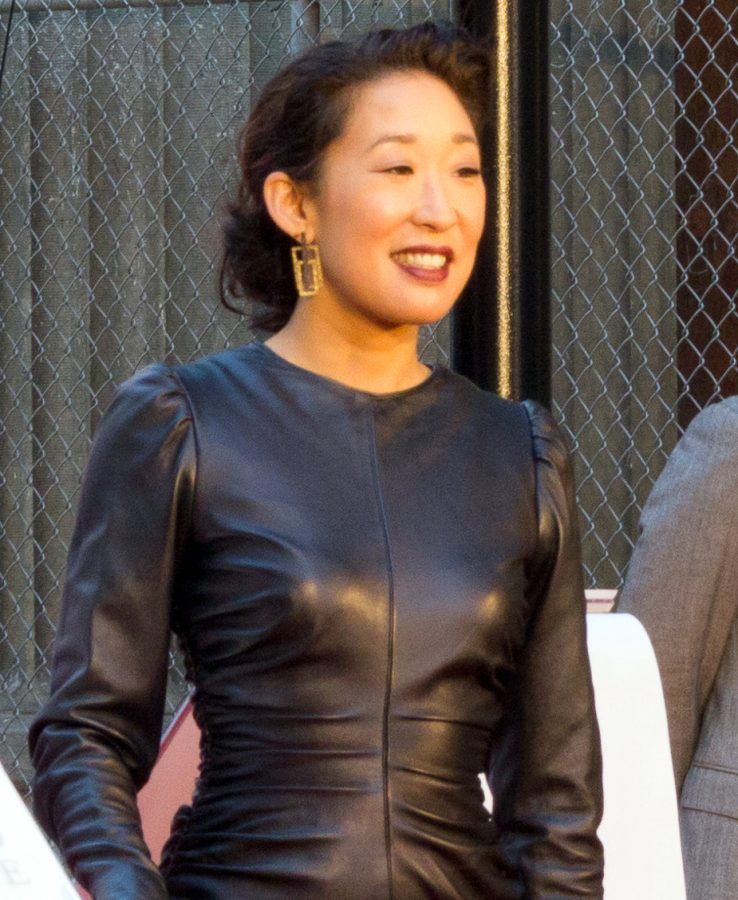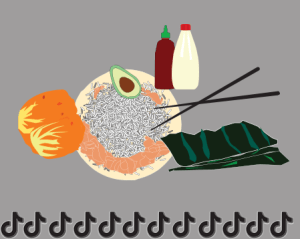What Netflix’s ‘The Chair’ Gets Right, and Wrong, About English Departments Today
Highlighting the similarities and differences between the fictional Pembroke University and Fordham
SANDRA OH VIA WIKIMEDIA COMMONS
Sandra Oh portrays Ji-Yoon Kim, a fictional English department chair on Netflix’s “The Chair.”
November 12, 2021
Grandiose choir music swirls as Ji-Yoon Kim walks up the stone steps of Pembroke, a fictional prestigious university, in the first few moments of Netflix’s “The Chair.” Kim, who is played by Sandra Oh, sits down at the head of a table filled with men as one greets her as “the first lady chair.” This man is referring to Kim’s precedent-setting role as the first female English department chair of Pembroke University.
The majority of the six-episode show follows the difficulties of running an English department in 2021: dealing with changes in student interests, studying English in a world consumed by technology and hiring a staff that reflects the diversity of the student body.
As a new student at Fordham, I found myself wondering how the Fordham English department compared to Pembroke’s and if the same struggles existed in both schools. To gain some insight, I spoke with Mary Bly, a professor and the current chair of Fordham’s English department, about the show.
When asked if she had seen the show, Bly nodded and said she even had to ration the episodes because she enjoyed watching them so much. After we both spent time admiring Sandra Oh’s acting skills, we were able to discuss the similarities and differences between Pembroke and Fordham.
One of the most intriguing points of the show was the school’s struggle to keep students interested in English courses. It was noted many times that the Pembroke administration noticed students weren’t interested in classical literature anymore and that technology had taken a hold on education and many career paths. This led to Pembroke’s 30% decline in English course registration, which made me curious if Fordham English is struggling with the same issue.
“Well, I’m really lucky. The Fordham English department is not in that situation at all. In fact, last year we taught more classes than any other department,” Bly said proudly.
“The Chair” also explored students’ desires to study more than literature and apply their curriculum in a real-world context.
The Fordham English department has grown every single year since 2016. Bly noted that a large part of the allure of English is its applicability. Whether a student is interested in attending law school, writing for film and TV, or running a theater program, proper writing skills are extremely valuable. The thriving nature of the department is exciting, but Bly mentioned that it doesn’t come without conscious effort.
“The Chair” also explored students’ desires to study more than literature and apply their curriculum in a real-world context. Demonstrated through a contrasting set of classes, one class in “The Chair” titled “Survey of American Letters, 1850 to 1918,” was shown to have two students. Another course titled “Sex and the Novel” clearly had students fighting for a seat in the class.
Due to the lack of attendance, Kim was pressured to rid the university of classes and aging professors that did not have high registration ratings. Bly reported that, instead of getting rid of professors or classes, she believes the content in the classes themselves should be modernized.
“We’re trying to think of our classes as teaching our students ways to think just as much as teaching them the content of the text.” Mary Bly, English department chair
Bly is an accomplished Shakespeare professor and teaches a class titled “Shakespeare and Pop Culture.” Classes like this allow professors to keep the foundational elements of the course they are teaching while giving them a modern-day perspective, helping students to view the work through a racial and social justice lens.
“We’re trying to think of our classes as teaching our students ways to think just as much as teaching them the content of the text,” Bly said.
The other incredibly important issue “The Chair” explored is the significance of having a faculty that is reflective of the student body. Pembroke University is painted as a historic and prestigious university. Following the stereotypes of schools like this, most of the English department faculty was made up of older white men.
I immediately knew Fordham would differ from Pembroke in this regard because roughly 50% of our English faculty are women. However, there is always progress to be made, and I was curious what the Fordham English department was doing in pursuit of creating a diverse and representative faculty.
Bly stated, “It’s mainly about hiring. Right before the pandemic, Fordham English hired four new professors, three of whom are people of color. We also hired a new director of the writing program, who is an expert in anti-racist pedagogy.”
Fordham is currently on a hiring freeze due to the pandemic, but it is comforting to know that the English department has and will continue to consider diversity and inclusion during the hiring process.
“The Chair” was an interesting insight into what running a department at a university might look like.
Furthermore, the department requires all English majors to fulfill a race and social justice attribute in at least one of their courses throughout their time at Fordham. These courses are incredibly beneficial in an English major’s education because they incorporate literature from minority, ethnic, diasporic, postcolonial, colonial and/or global traditions.
As stated in the description of the attribute, the courses also aim to examine issues of race through the lenses of ethics, social justice, respect for human dignity and the sustainability of the world in which we live.
“The Chair” was an interesting insight into what running a department at a university might look like. While some moments may have been exaggerated or inaccurate, the show explores current issues that have some degree of relatability for English chairs everywhere.
Although Fordham and Pembroke are both working toward modernizing courses and intentionally crafting a staff representative of the student body, Fordham’s English department is doing extremely well, and the urgency to cut classes and professors that was demonstrated in “The Chair” is not going to be a reality for Fordham anytime soon.















